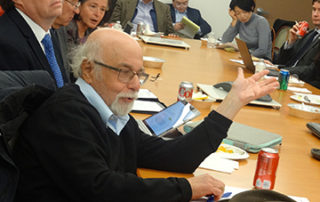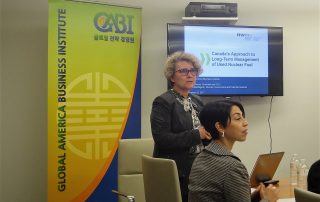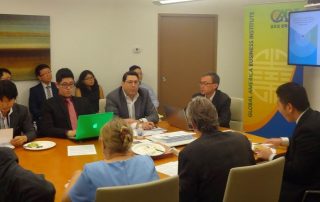GABI organizes nuclear energy roundtable discussions on a diverse range of topics that are relevant to nuclear markets both in the United States and globally. The discussion topics range from the civil nuclear partnerships, nuclear safety, nonproliferation, spent fuel management, international R&D and commercial collaboration, market and industry forecasts, and other related topics.
US-Korea Cooperation in New Nuclear Markets: Opportunities, Challenges, and Imperatives
Growing global energy demand and carbon mitigation challenges together drive increasing interest in nuclear power globally, even as the world continues to deal with the aftereffects of the Fukushima accident. With China’s potential to become a dominant civil nuclear vendor and significant difficulties for nuclear energy in U.S. power markets, the imperatives for international cooperation










